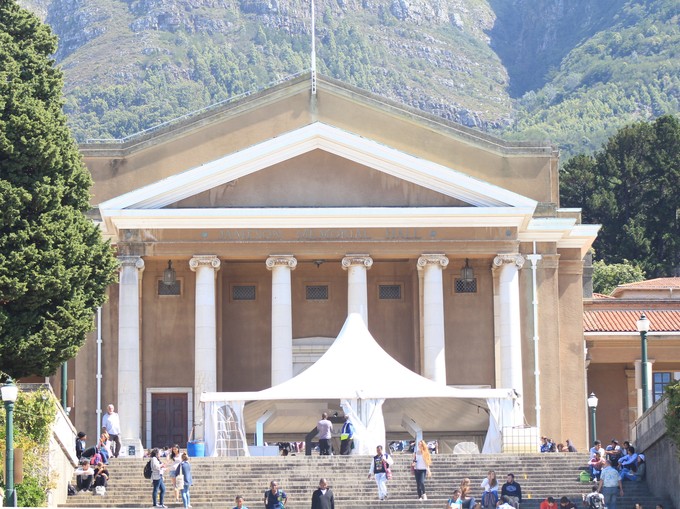
Photo: Masixole Feni
26 May 2016
Staff at the University of Cape Town (UCT) could face retrenchments if a set of austerity measures being carried out by the university fail. The latest of these measures are incentivised early retirement and incentivised voluntary separation (resignation).
Three unions at UCT have expressed concern over the process by which the two latest options were presented to staff.
Incentivised early retirement is being offered to staff between the ages of 55 and 62 and they will be paid out a lump sum to a maximum of 12 months of pay. The other option for staff younger than 60 is voluntary separation, where they can be paid a lump sum of a maximum of 18 months of pay.
The staff have until 30 June to apply for either of the packages.
See here for details of the two packages.
“We do not yet know whether it will be possible to achieve all required savings through natural attrition and voluntary processes. If it becomes necessary at a later stage to restructure to achieve efficiency and meaningful savings, we will then follow due HR process in consultation with the unions,” said Vice-Chancellor Max Price in a statement.
He said that the concerns raised by unions and other stakeholders as well as further information on the packages will be provided “shortly”. UCT’s spokesperson Pat Lucas told GroundUp yesterday that the university expects to have this information by early next week.
Three unions at UCT, the Academics Union, Employees Union and NEHAWU, issued a statement following Price’s, expressing their “deep concern” with the process whereby the two options were offered to staff. They claim that the “impression of consultation” that Price’s statement makes is incorrect as the input that the unions provided “appears largely to have been ignored”.
They also say that the communication about the offerings has been insufficient.
The unions say that “other initiatives are under way to address financial sustainability” and that these have not yet had time to be fully realised nor have “other creative ways of saving without reducing staff numbers” been fully explored.
Kelley Moult, the vice president of the Academics Union, explained that these other initiatives were being implemented by each faculty.
“Each faculty set a saving target that they need to realise over the next two years,” said Moult.
Moult said that staff “are extremely concerned” and that amongst the academic staff morale is at an “all-time low”. She said that it was “hard to know” how many of the staff would apply for voluntary retirement or separation.
The unions also take issue with the lack of guidelines on who should be considered for the two options as well as how staff should know if their department is particularly in need of making cutbacks.
Moult said that it was not the two options that were the problem, but rather the manner in which they have been presented – without apparent guidance on how to implement them.
She said that without guidelines the process was “open to subjectivity” as one did not know under what criteria someone was accepted or rejected for voluntary retirement or separation.
Already, she said that two faculties had said that they didn’t believe that they would need to implement the two incentivised options as they believed they would reach their austerity targets without them.
Other issues raised by the unions include a lack of time for staff to consider the offers and “the impact of redistributed work on staff workloads”.
Earlier this year Price announced austerity measures at the university that needed a minimum of R120 million to be saved by 2018. This was as a result of a 20% smaller budget over the past five years due to the governmental subsidy only increasing at 3,5%, which Price says “was about 2,5 percentage points behind inflation and 4 percentage points behind UCT’s cost increases”.
Price said that higher education in South Africa was facing a number of challenges that have influenced austerity measures, one of these being insourcing. Last year UCT agreed to insource six services following pressure from students and workers.
He also said that the university used to mitigate some of these costs through fee increases that were higher than inflation. This year, the university wasn’t able to increase the fees at all, but commitments from the Minister of Finance have covered the shortfall. Despite this, there is no indication of “a growth in subsidy that will keep up with growing student numbers and with inflation”. It was because of this that austerity measures needed to be implemented.
Correction: The article originally stated that the cut-off date for taking packages was 20 June. It’s in fact 30 June.